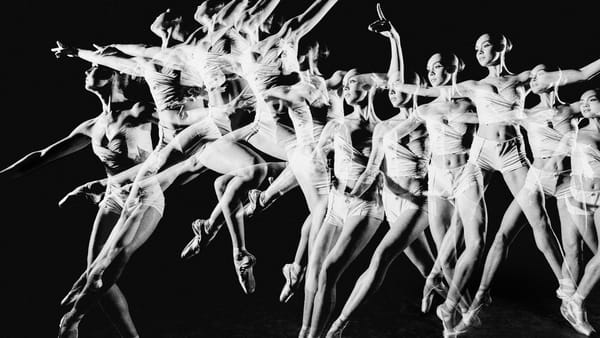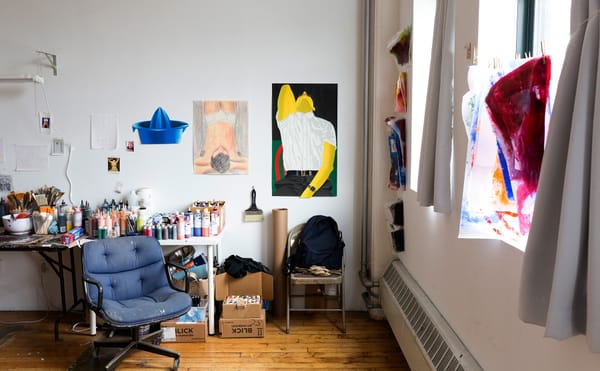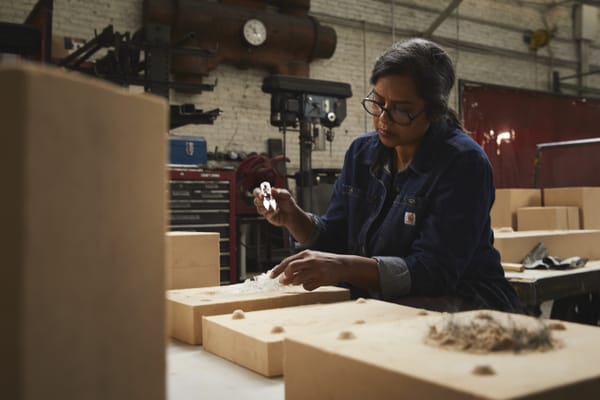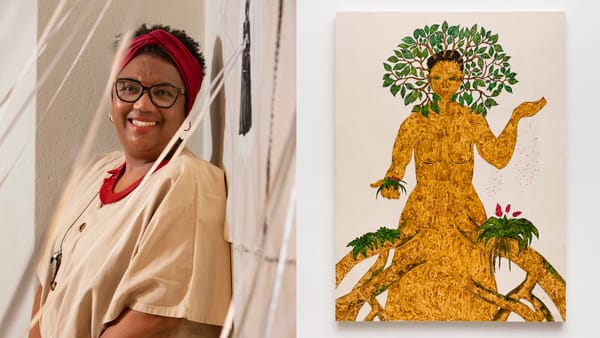South Asian and Modern Queer Aesthetics Merge in Visually Sumptuous Art
Jaishri Abichandani's first museum survey challenges visitors to take in the full breadth of her artwork — as well as her activism and community engagement.
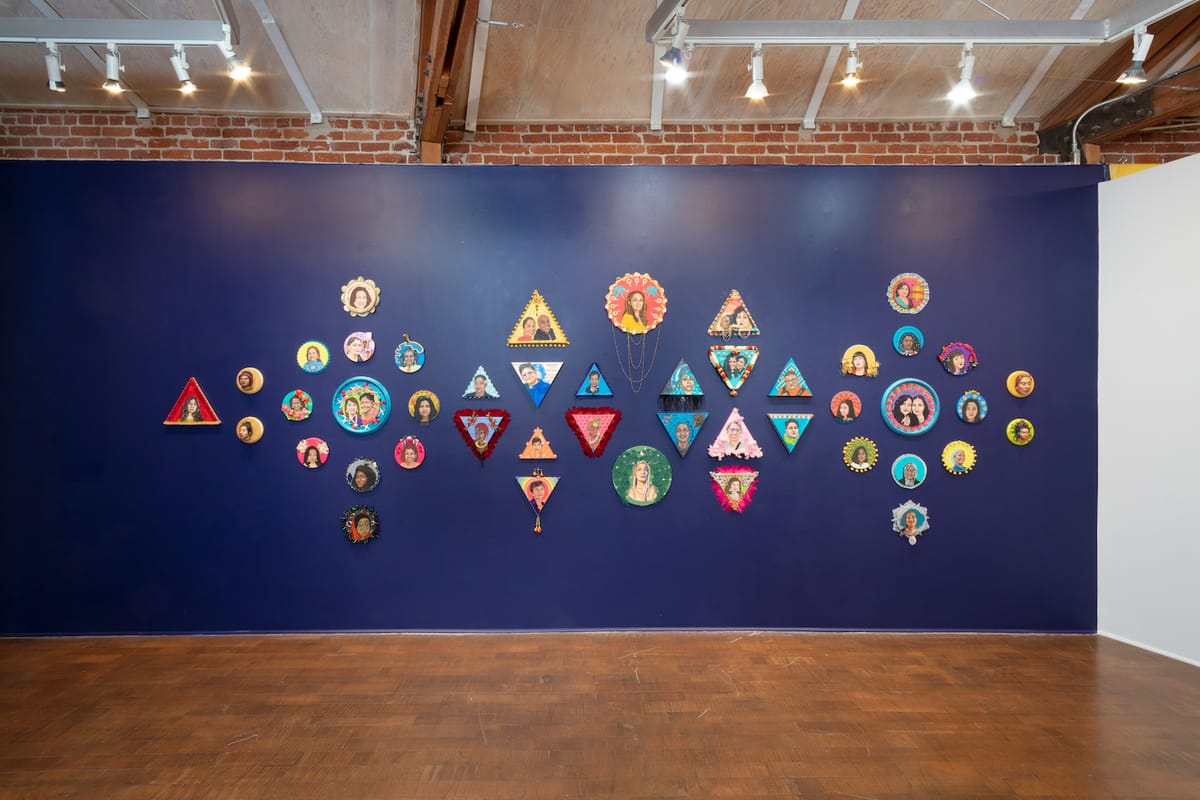
LOS ANGELES — For many artists from communities of color, a creative practice isn’t just about making art; it’s also about larger actions, like speaking up against social injustices and fostering the next generation of artists of color. Brooklyn-based artist Jaishri Abichandani’s first museum survey, Flower-Headed Children, speaks to this intersectionality, challenging visitors to take in the full breadth of her artwork — as well as her activism and community engagement.
The artist founded the South Asian Women’s Creative Coalition (SAWCC), a nonprofit organization focusing on “advancement, visibility, and development of emerging and established South Asian womxn artists,” according to its official website. She also previously worked as the director of public events and projects at the Queens Museum of Art, among other contributions to the art world. While some of the pieces in the exhibition are deeply intimate, others capture a collective energy.
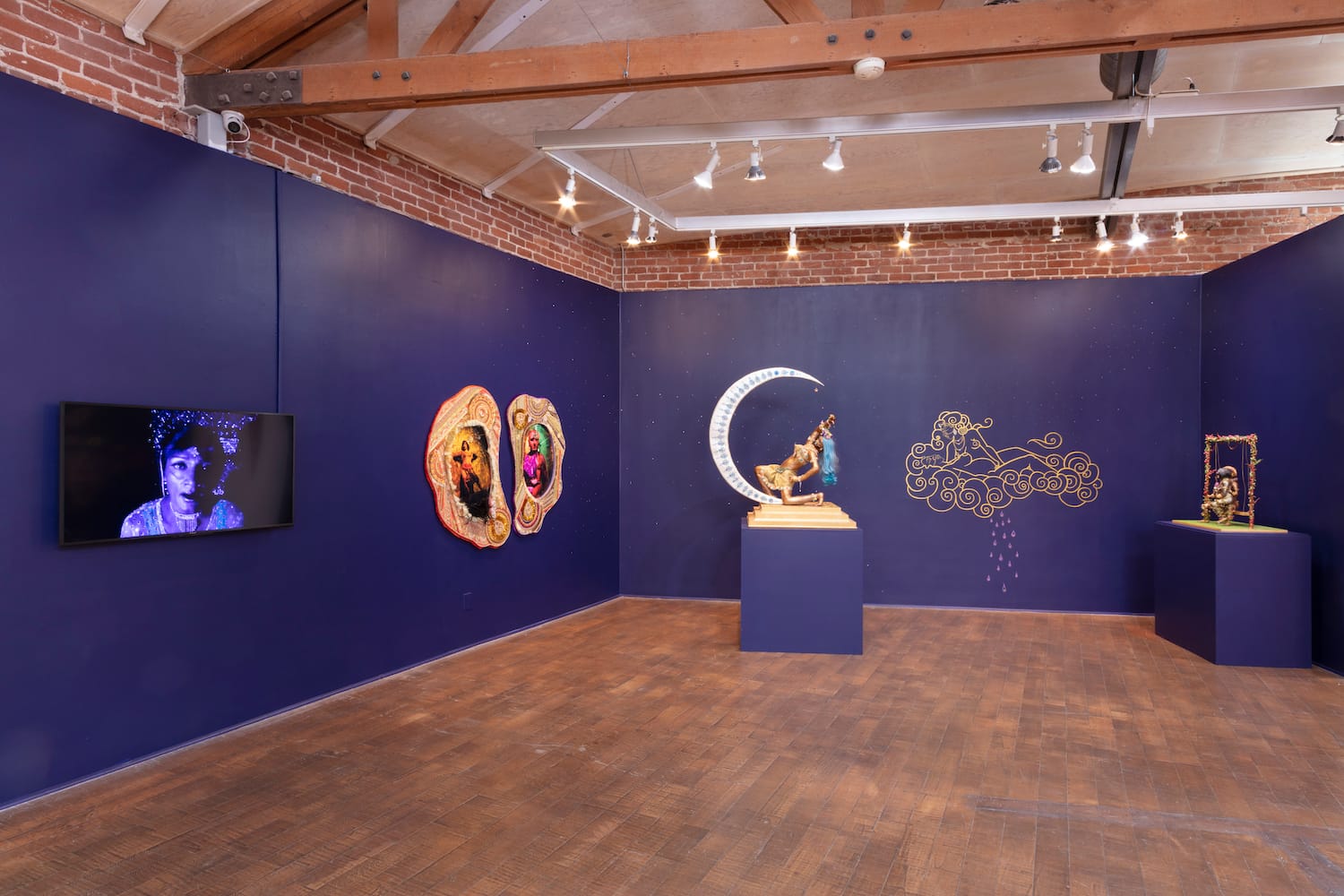
Jasmine Blooms at Night (2021), an installation composed of multiple portraits, pays homage to South Asian feminist activists throughout the country, including Dr. Anjali Arondekar, who wrote the book For the Record: On Sexuality and the Colonial Archive in India, and queer Sri Lankan performance artist, activist, organizer, and educator YaliniDream. Abichandani highlights the rise of South Asian women in United States politics, in particular Vice President Kamala Harris and Congresswoman Pramila Jayapal. “Kamala’s Inheritance” reflects the artist’s perspective on Harris as a hopeful figure — a South Asian and Black woman in politics, whose presence will potentially usher in even more women of color — but also someone with “hubris, which can push her toward positions that have more flash than substance,” according to the artwork’s walls text. The symbols in the piece reference Greek mythology, Hindu religion (specifically the lotus flower), and American imperialism.
“Mona,” a portrait of Mona Eltahawy, likens the journalist to the Egyptian goddess Sekhmet. Eltahawy’s bright red hair fits the overall opulence of the work, comprised of paint, plastic, mirrored glass, and fabric. The portrait expresses her uncompromising personality as she holds up two middle fingers.

Other works reference the #MeToo moment, protest, and community action, spotlighting Abichandani's 2017 performance at the Met Breuer in which she asked 30 people to join her for a #MeToo demonstration. The action took place during photographer Raghubir Singh’s retrospective; Abichandani alleged that Singh assaulted her, and openly shared her story.
The exhibition’s text, printed on a bright gold wall, explains that Abichandani’s works “broaden American art audiences’ appreciation of aesthetics that represent an unfamiliar cultural experience.” The show embraces visual sumptuousness; some pieces glitter from every angle.
“Unlike other immigrant communities, South Asians have yet to establish institutions for contemporary art and culture,” the show’s curator, Anuradha Vikram, wrote in an ArtNews article in 2019. “Our institutions tend to be houses of worship, folkloric programs, and schools for the classical arts.” Overall, Vikram explains, “attention devoted to contemporary art by South Asians working in the US is rare.”

The show asks viewers to check their assumptions, and question their reactions to each piece. Abichandani argues that South Asian devotional art and queer culture have both been regarded as strange and other within (mostly straight, White) Euro-American society. She embraces and exalts queer culture in the show. “Two Boys in Saris” (2018) is installed on its own pedestal, painted gold to match the surrounding walls. It showcases the artist’s integration of devotional images with modern queer aesthetics; the jewelry and clothing on each figure nod to Hindu traditions of dressing idols in temples, while elements like bright blue lipstick speak to liberation in fashion. It portrays two queer Muslim performance artists whose poses point to Bollywood themes.
The show is a reminder that South Asian contemporary artists are ready to be heard, whether or not institutions want to catch up.
Jaishri Abichandani: Flower-Headed Children continues at Craft Contemporary (5814 Wilshire Boulevard, Los Angeles, California) through May 8. The exhibition is curated by Anuradha Vikram.

